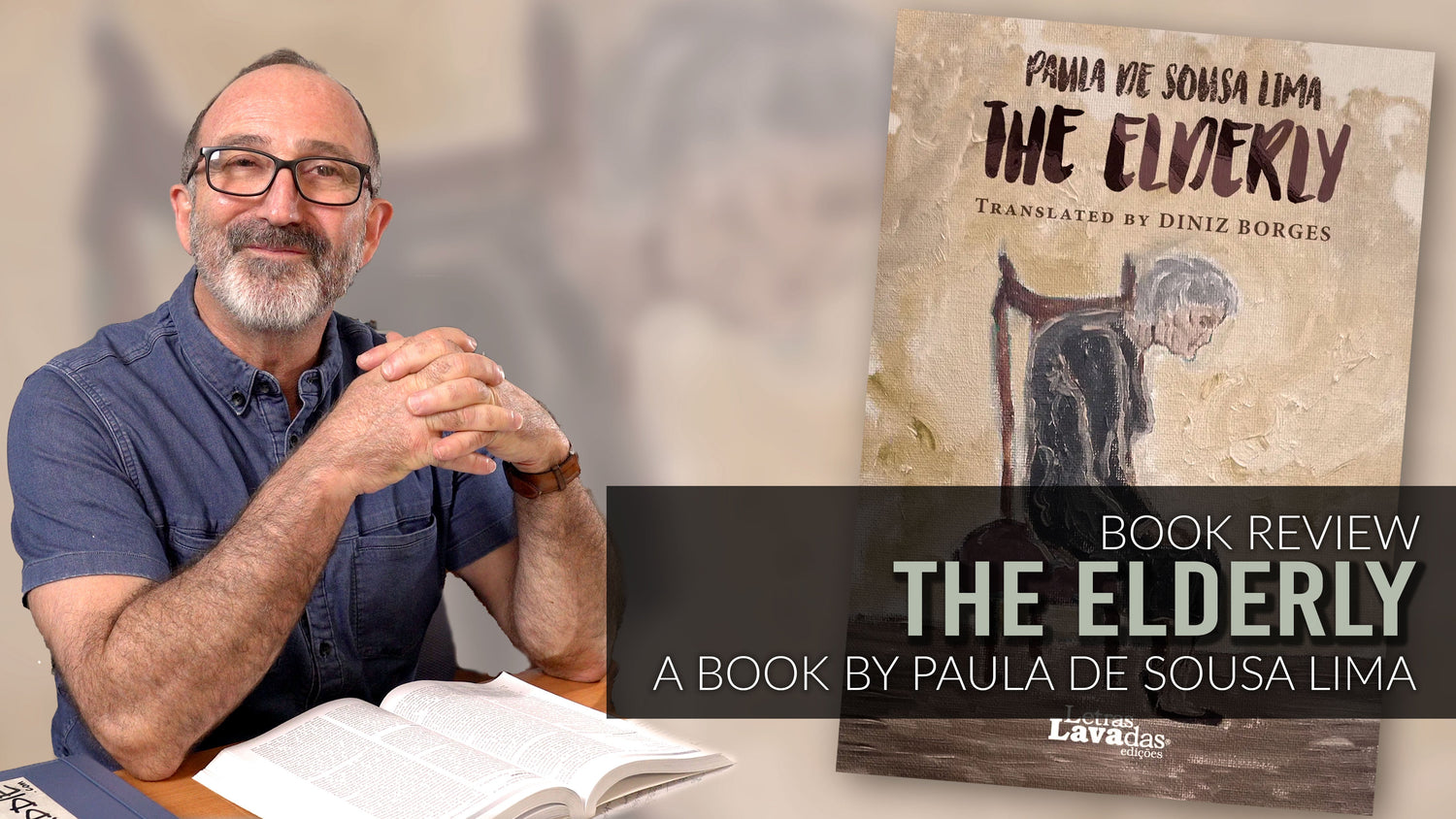A book by Paula De Sousa Lima, translated by Dinez Borges, English edition published by Bruma Publications.
For a long time, I've wanted to share my thoughts on a truly exceptional book, but it took some courage to finally put them into words.
When I travel, I love to immerse myself in local culture by discovering novels by local authors. That's how I found The Elderly by Paula De Sousa Lima during an aromatic retreat on the Azores with my dearly departed friend, Jonathan Benavides.
This book holds beautiful memories of both the Azores and Jonathan. I'm still not entirely sure what drew me to it – perhaps a desire to better understand my own elderly parents, who are still ‘just’ managing to living independently. Whatever the reason, this novel moved me profoundly and deeply, challenging me emotionally. It wasn't an easy read; I had to take breaks due to the intensity of its content. Yet, this wasn't due to any flaw in the writing; quite the opposite, it was simply beautiful and I often found myself crying while I was reading.
Paula De Sousa Lima's, The Elderly, sensitively translated by Dinez Borges, is far more than a narrative of three elderly people living in a nursing home. It is a deeply resonant journey into the nuanced landscape of aging, demanding introspection and empathy from its readers. De Sousa Lima masterfully peels back the layers of societal perception, revealing the vibrant inner worlds that persist despite physical decline or institutional settings.
The novel's power lies in its unflinching psychological probing. It's a testament to De Sousa Lima's skill that the book can be so compelling, yet simultaneously challenging to absorb in large sittings, much like processing deeply personal truths. The author's ability to tap into the raw emotions and forgotten aspirations of her characters fosters an intense empathy, compelling the reader to acknowledge the inherent humanity within each elderly individual. This is poignantly underscored by the book's stark opening, "She no longer knows how to pray," followed by a heart-wrenching meditation on the exhaustion of hope and the descent into "complete alienation from life." This initial insight immediately frames the central challenge of the book: to rediscover the person within the perceived shell.
One of the most impactful techniques employed by De Sousa Lima is the dual perspective of "now and before." By interweaving the present realities of the nursing home with vivid recollections of past dreams, loves, and struggles, she doesn't just narrate; she restores dignity to lives often dismissed as inconsequential. This narrative choice helps us understand not only who these individuals once were, but also the myriad experiences that shaped them into who they are now.
Furthermore, the book subtly yet effectively provides insight into the tumultuous period of political upheaval in early 20th-century Portugal, allowing me who was unacquainted with this history to grasp how these broader societal shifts also moulded the characters' lives and perspectives. It is a powerful reminder that behind every aged face lies a tapestry of rich, complex, and deeply personal history.
Ultimately, De Sousa Lima challenges us to confront our preconceived notions about aging. Through the intimate portraits of her characters, she urges us to recognize that the elderly are not merely recipients of care, but individuals with feelings, memories, and an enduring need for connection and recognition. The author implores us to look beyond the superficial, to acknowledge the profound impact of isolation and the loss of identity that can accompany old age, particularly when society fails to see the whole person.
The Elderly, serves as a poignant mirror, reflecting our own families, our own inevitable journeys through life, and our collective responsibility to foster a more compassionate and understanding society where hope is never fully extinguished, and every person is seen for who they truly are. It is a powerful call to re-evaluate our treatment of the elderly, ensuring that their later years are marked by dignity, connection, and the remembrance of their inherent worth.
This is a book that everyone must read!
You can find the book here - https://www.letraslavadas.pt/the-elderly





